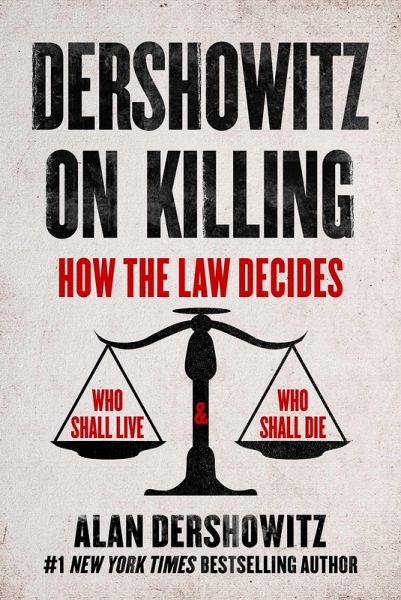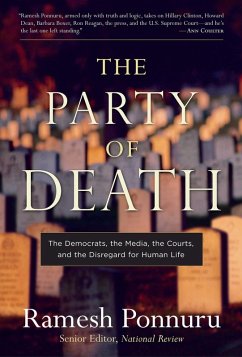
Dershowitz on Killing (eBook, ePUB)
How the Law Decides Who Shall Live and Who Shall Die

PAYBACK Punkte
0 °P sammeln!
In Dershowitz on Killing: How the Law Decides Who Shall Live and Who Shall Die, Alan Dershowitz-New York Times bestselling author and one of America's most respected legal scholars-examines the subjects of death, life, and the law. Alan Dershowitz has been called "one of the most prominent and consistent defenders of civil liberties in America" by Politico and "the nation's most peripatetic civil liberties lawyer and one of its most distinguished defenders of individual rights" by Newsweek. His legal career as a criminal defense lawyer has been deeply involved with death and life decisions. De...
In Dershowitz on Killing: How the Law Decides Who Shall Live and Who Shall Die, Alan Dershowitz-New York Times bestselling author and one of America's most respected legal scholars-examines the subjects of death, life, and the law. Alan Dershowitz has been called "one of the most prominent and consistent defenders of civil liberties in America" by Politico and "the nation's most peripatetic civil liberties lawyer and one of its most distinguished defenders of individual rights" by Newsweek. His legal career as a criminal defense lawyer has been deeply involved with death and life decisions. Dershowitz on Killing is a timely examination of issues and questions that are front and center in today's society. Employing a philosophical, moral, religious, and cultural lens to the legal aspects surrounding death and life, Dershowitz elucidates the role of government to determine who shall live and who shall die in declaring wars, ordering executions, authorizing deadly force, permitting or denying abortions, providing or mandating vaccines, controlling climate change, allowing or refusing asylum for endangered migrants, and other life and death rulings. He notes that when the government decides these choices, it is asked to do so by first determining whether a "right" is involved, because rights trump mere interest, just as constitutional restrictions trump legislative and executive actions. Dershowitz on Killing asserts that the rules governing death and life decisions should reflect the irreversibility of death. It is essential reading for anyone interested in or concerned about how these decisions are allocated among state and federal; executive, legislative, and judicial; private and governmental; religious and secular institutions-and how people in a democracy, through the power of the ballot, have the ultimate say in these critical decisions.
Dieser Download kann aus rechtlichen Gründen nur mit Rechnungsadresse in A, B, BG, CY, CZ, D, DK, EW, E, FIN, F, GR, HR, H, I, LT, L, LR, M, NL, PL, P, R, S, SLO, SK ausgeliefert werden.













